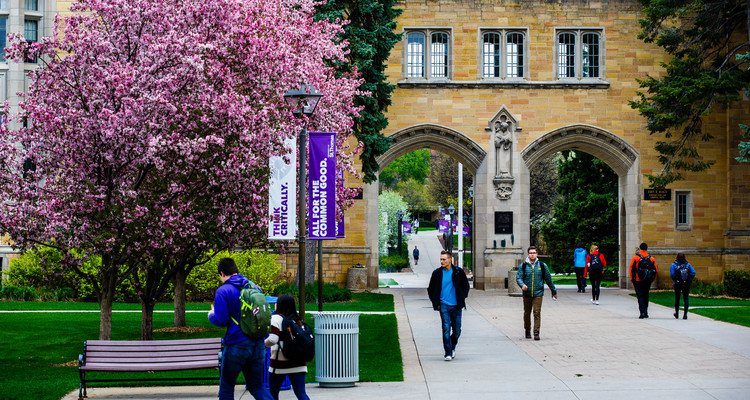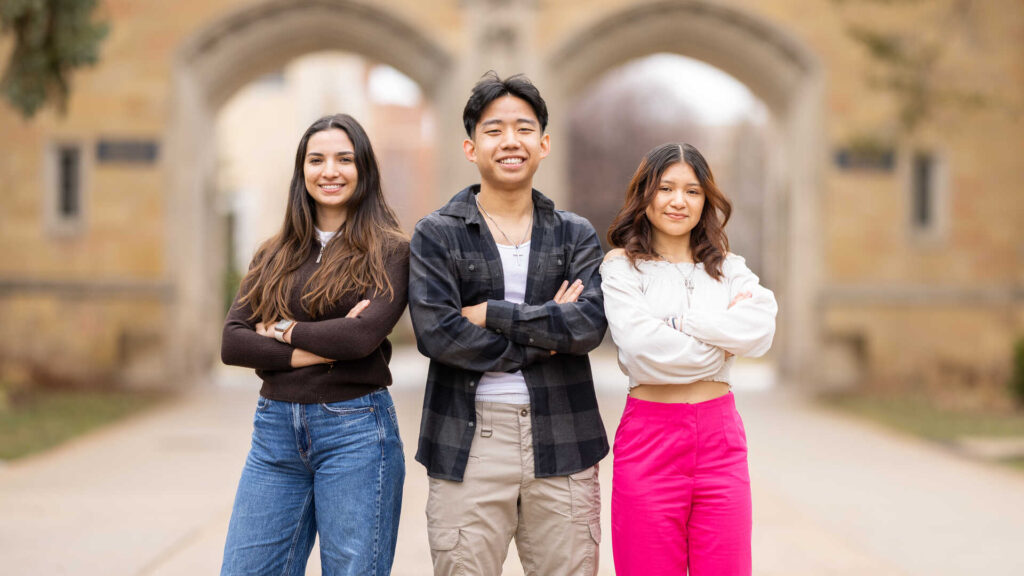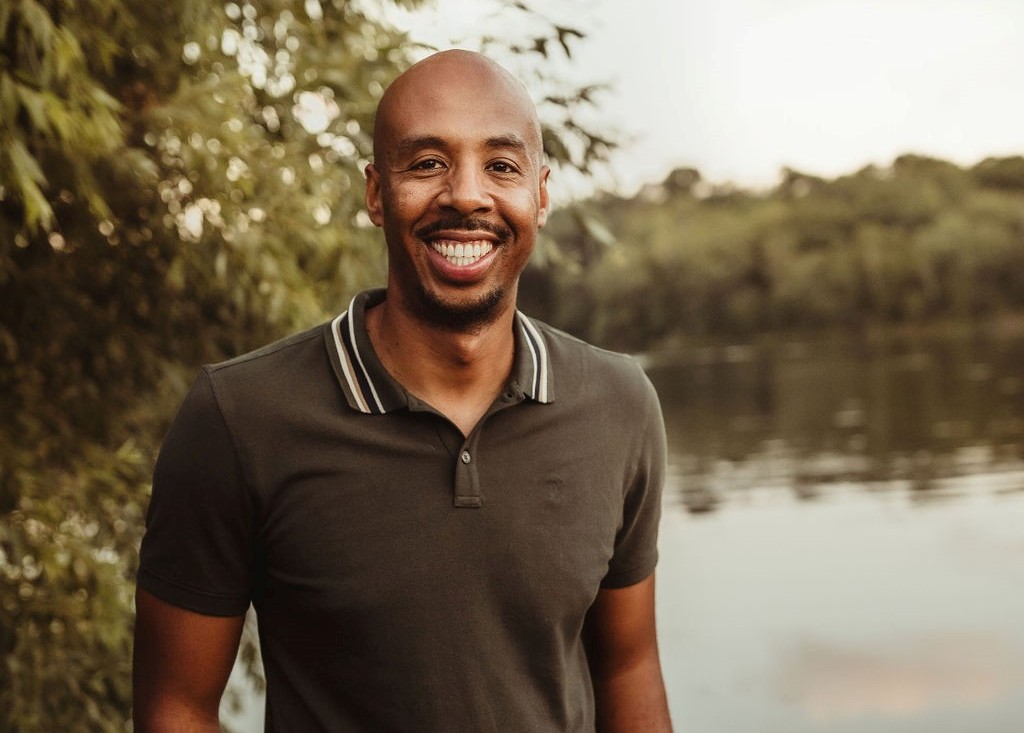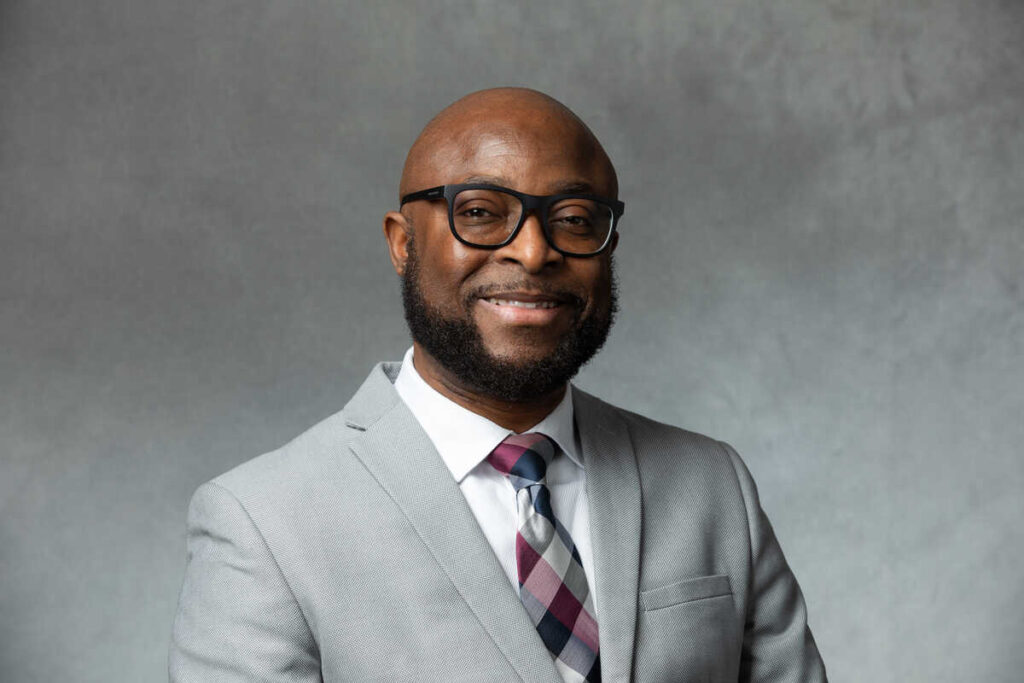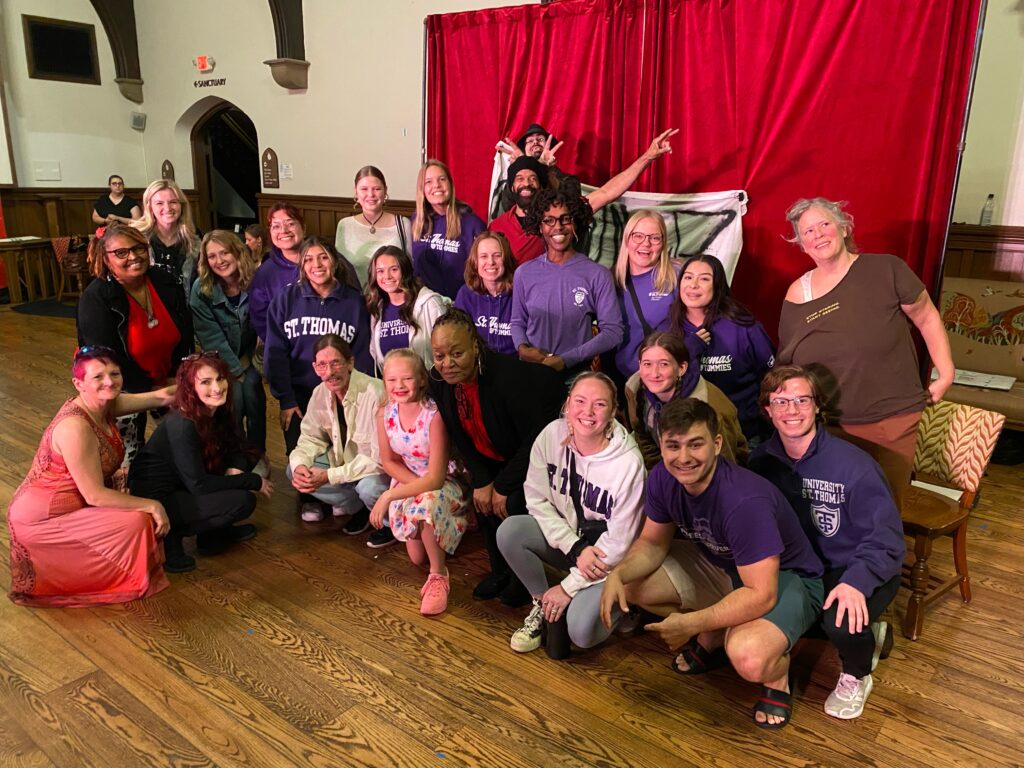The University of St. Thomas is on track to becoming an Ashoka Changemaker Campus. Since early last year, a small team of St. Thomas faculty, staff and students has been taking steps toward earning the special designation granted by Ashoka, a nonprofit and the largest network of social entrepreneurs in the world.
The designation, which is part of the Ashoka U program, recognizes colleges and universities that have embedded social innovation as a core value and showcase the ways in which they have built supportive environments for "changemaking" across the entire institution – from admissions to curriculum, career services, and community and alumni engagement. Its core aim is to empower faculty, staff and students in higher education to affect change in their own communities, their countries and the world.
The program has accepted 35 national and international colleges and universities since it launched Ashoka U in 2008. If St. Thomas is accepted, it will become the first Ashoka Changemaker Campus in Minnesota.
"This has the potential to be big," said Adam Kay, Ph.D., a biology professor in the College of Arts and Sciences at St. Thomas, and co-leader of the St. Thomas' team tasked with the application process. "This designation can complement all of the great things we're already doing."
Through the designation, Ashoka aims to highlight innovative models and strategies of university-based social innovation at the most advanced institutions. Moreover, entry into the consortium would bestow on St. Thomas more than just a label – the designation comes with distinctive advantages.
"It's going to open doors for us so we can start thinking about real, substantial, long-term partnerships," Kay said. "There are these 35 amazing campuses across the world [among the consortium are Portland State University, Brown University and the University of Northampton in the United Kingdom]. I don't think we'd have the same opportunities if we just cold called some of these places and asked to do [for example] a student exchange. As part of the consortium, we'll be able to start thinking about these types of collaborative, sustainable partnerships where there's reciprocity."
The designation also would have a tremendous impact on how St. Thomas interacts among its own community. "It's going to be good for developing interdisciplinary partnerships ... breaking down silos and bringing people from different departments together," Kay said. "That's a key aspect of our One University approach, and belonging to this collective can be a very useful tool."
He also believes these partnerships can be a way to empower students by giving them the empathy, humility and cultural competency to be able to organize the community partnerships they'll need to form in order to challenge the social problems affecting diverse communities, including the Twin Cities.
"There's a rapidly growing urban community ... a lot of income disparities, and unfortunately the diversity on our campus doesn't reflect the diversity in our community," Kay said. "So Ashoka's focus on long-term interactive relationships with community partners can make us more in tune with what our society is like and can better equip our students with the cultural, economic and environmental competencies they need to be successful in our diverse world after they graduate."
In January, Kay and his fellow co-leaders, Brian Abraham, Ph.D., associate dean of entrepreneurship in the Opus College of Business, and Camille George, Ph.D., associate vice provost for global and local engagement in the Office of Academic Affairs, received feedback from the Ashoka U program based on a required form – called a 360 scan – they submitted in November 2015 that documented in detail all of the social innovation taking place at St. Thomas. It was the first gauntlet in the stringent application and review process.
Among the highlights they noted were the BUS200 service-learning program, the Office of Global and Local Engagement, the Interprofessional Center and Cleantech Open Midwest, the new business incubator program in the Schulze School of Entrepreneurship, among others.
Over the past few months, the team consulted a broad range of St. Thomas faculty, staff and students to address Ashoka's input. This month they will submit their revision, and if the program administrators approve it, Ashoka will schedule a site visit to interview senior leaders and other key personnel in social innovation. After the visit, St. Thomas "Change Leaders" will formally make a case for St. Thomas to become a Changemaker Campus to a panel of experts in social innovation selected by Ashoka U – the final part of the application process.
"There's a lot of exciting things coming along through the strategic planning process that will strengthen our application to Ashoka," said Kay, who is optimistic but mindful that there is still a lot of hard work to be done.
If all continues to go smoothly, the team is hopeful that St. Thomas will be designated a Changemaker Campus in early 2017.
